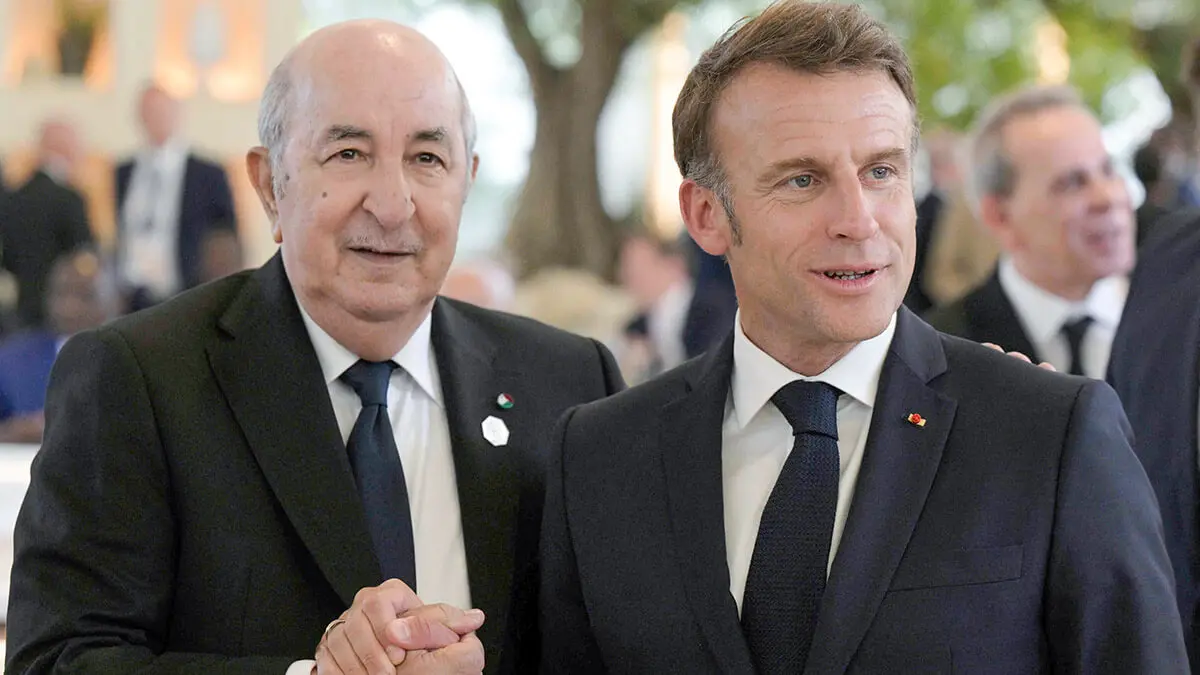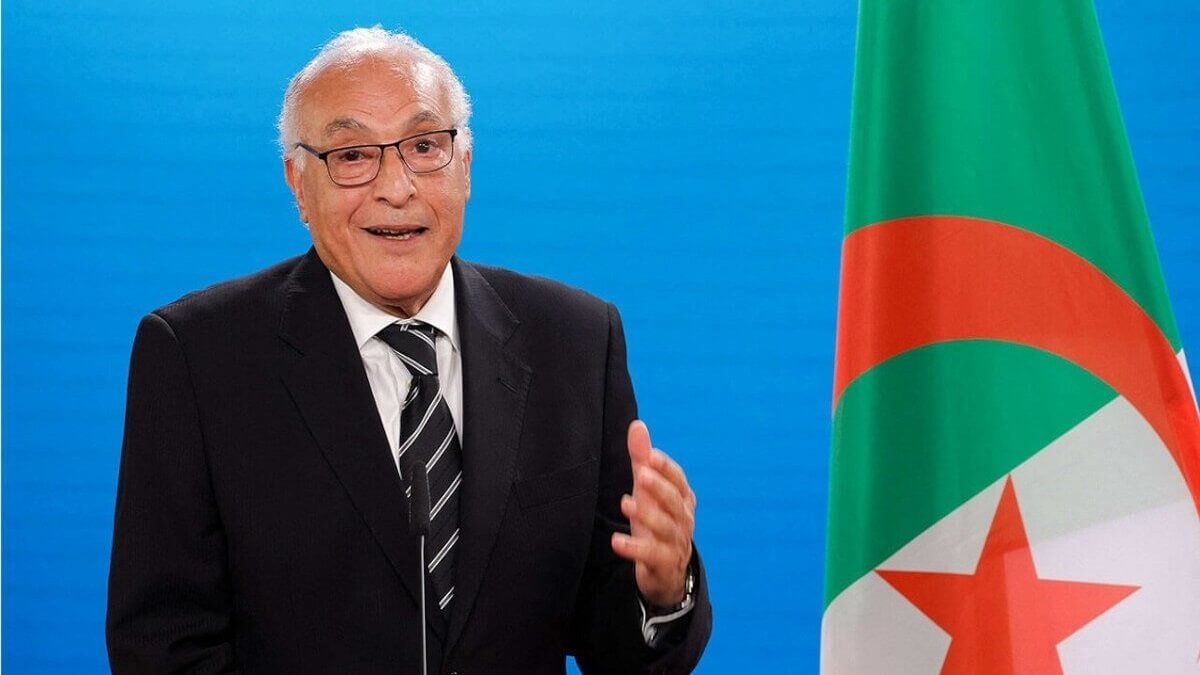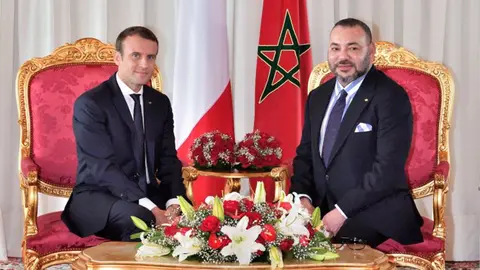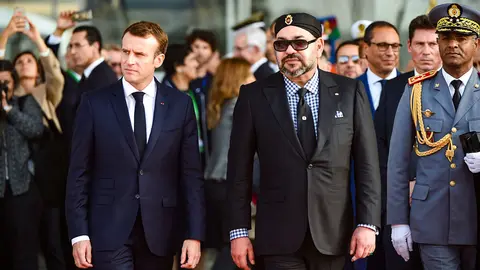Algeria-France: The serious confessions of the head of Algerian diplomacy, Ahmed Attaf

Before an audience of journalists and officials from his ministry, Ahmed Attaf revealed that the Algerian authorities were aware of the French decision to recognise Moroccan sovereignty over the Sahara. "On the sidelines of the G7 summit in Bari, Italy, on 13 June, the French president informed the President of the Republic, Abdelmadjid Tebboune, of (his) country's open support for the autonomy plan".
These are very serious confessions, which make us wonder about the silence kept by Algiers for "a month and a half", as the Algerian minister insisted on pointing out. A serious and compromising confession for President Tebboune.
And it was not by declaring that "The response of the President of the Republic was firm, resolute and very precise, underlining the fact that the French position is not a simple reproduction of his previous positions" that he would end up convincing public opinion that the Algerian head of state had indeed shown his disapproval of his French counterpart. This was not what the images broadcast by all the world's television channels showed. Abdelmadjid Tebboune could be seen smiling, affectionate and enthusiastic in front of Emmanuel Macron. The two men exchanged kisses, hugs and laughter. An attitude rarely seen between two heads of state, especially when they are angry with each other. From the beginning to the end of the G7 summit.

Algeria's first reaction came on 25 July with a press release from the Ministry of Foreign Affairs, threatening in tone but devoid of meaning. No alternative was proposed to resolve this regional crisis, which Algiers maintains without the slightest international support. No mention of the Tebboune-Macron meeting in Bari. No recollection of Tebboune's reaction to hearing the news from Macron. It was as if the news had just come out.
In reality, as Ahmed Attaf pointed out, the Algerian reaction came when 'the French authorities informed us, through our ambassador in Paris, of the content of the letter that the French president intended to send to the King of Morocco, in particular the text concerning the question of Western Sahara'. And the instructions given to the Algerian ambassador in Paris did not come from Tebboune, but 'from the highest authorities of the country. Our ambassador in Paris expressed to the French authorities Algeria's position on this step, warning them of its serious repercussions and consequences'. There is a clear distinction between "the Head of State" and "the highest authorities". It was the latter who instructed the ambassador on how to respond to the French and invited him to return immediately.
Did Tebboune lie to the generals to secure a second term?
If Algiers remained silent until 27 July, even though President Tebboune was aware of the situation and had been officially informed by Macron himself, it simply means that the Algerian head of state kept his secret.
In Algiers, he does not seem to have informed the army generals, the country's real decision-makers. He lied by omission. That is the least that can be said. For such an important issue in the eyes of the Algerian leadership, the President of the Republic should have immediately informed the military hierarchy and the government to study the matter. For much less, the High Security Council met on 17 August 2021 to decide on the revision of diplomatic relations with Morocco, which was accused, without any evidence, of involvement in the deadly fires that ravaged northern Algeria. A few days later, on 24 August, Ramatane Lamamra, then foreign minister, announced the severance of diplomatic relations between the two neighbouring countries. Less than a month later, on 17 September, Algiers took a tougher line. The High Security Council, reconvened under the chairmanship of Abdelmadjid Tebboune, decided to "immediately" close its airspace to all Moroccan civilian and military aircraft, as well as aircraft registered in Morocco". The escalation had reached its peak, and all that remained was for Algiers to declare war on its western neighbour.

All this agitation and hostility towards the Moroccan kingdom, which refrained from responding to Algeria's incessant provocations, eventually backfired on its perpetrators through a series of setbacks on the international stage. It began with the failure to include the Saharawi issue on the agenda of the Arab League summit held on 1-2 November in Algiers. Even when the organisers tried to present a geographical map of Morocco without the southern part of its territory, they were quickly called to order by the participants, who quickly apologised, citing a technical error.
Algeria’ s isolation on the Arab stage has been compounded by its isolation on the international stage. Having pinned their hopes on membership of the BRICS, which they wanted to present as an unparalleled triumph, Algeria's leaders were dashed against the door of this new economic organisation, led by their strategic allies Russia, China and South Africa. An unparalleled affront inflicted by their own friends. Recently, the leaders of the Palestinian factions that Tebboune thought he had won over with a dinner at the Sheraton Hotel in Algiers have just sent him a scathing slap in the face from Beijing by signing a declaration of their unity around their sacred cause. An event for which the Algerian regime went out of its way to make sure it was held in Algeria.
With Macron's announcement in Bari, Tebboune certainly did not want, with this umpteenth setback, to add the final straw and have the military establishment deny him a second term in office. It was in his interest to keep it secret. He wanted to take advantage of the time factor, as he knew that the announcement would not be made until the end of July, on the occasion of the Feast of the Throne in Morocco. That was more than enough time for him to be granted this famous second term. On 17 September he obtained his ticket to announce his candidacy. His candidacy ensured him an easy victory, as for the first time since presidential elections have been held in Algeria, there were only three candidates. Tebboune and two lame ducks who do not even get the votes of their neighbours. Two unknowns in the court of public opinion who are nowhere to be found on the internet search engines.
Why this belated confession?
By calling a press conference the day after the French decision, Ahmed Attaf made a serious confession. Why call a press known for its subservience to power? Did he initiate this conference? What was his purpose in calling it? These are questions that only Attaf can answer, and which none of the many journalists present dared to ask. No doubt we will know more in the coming days.











